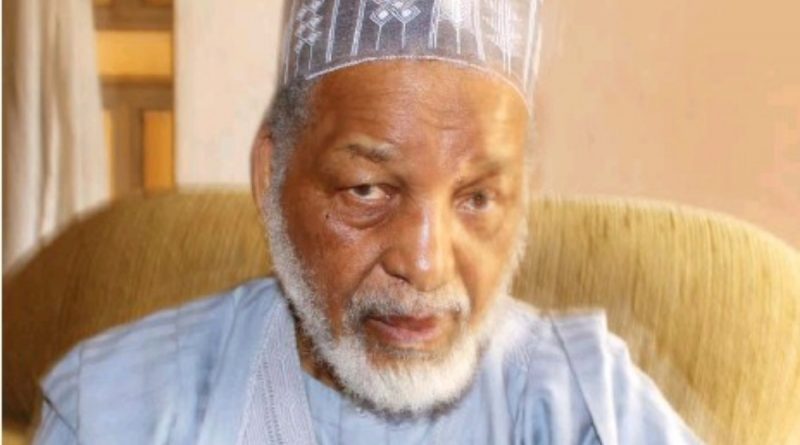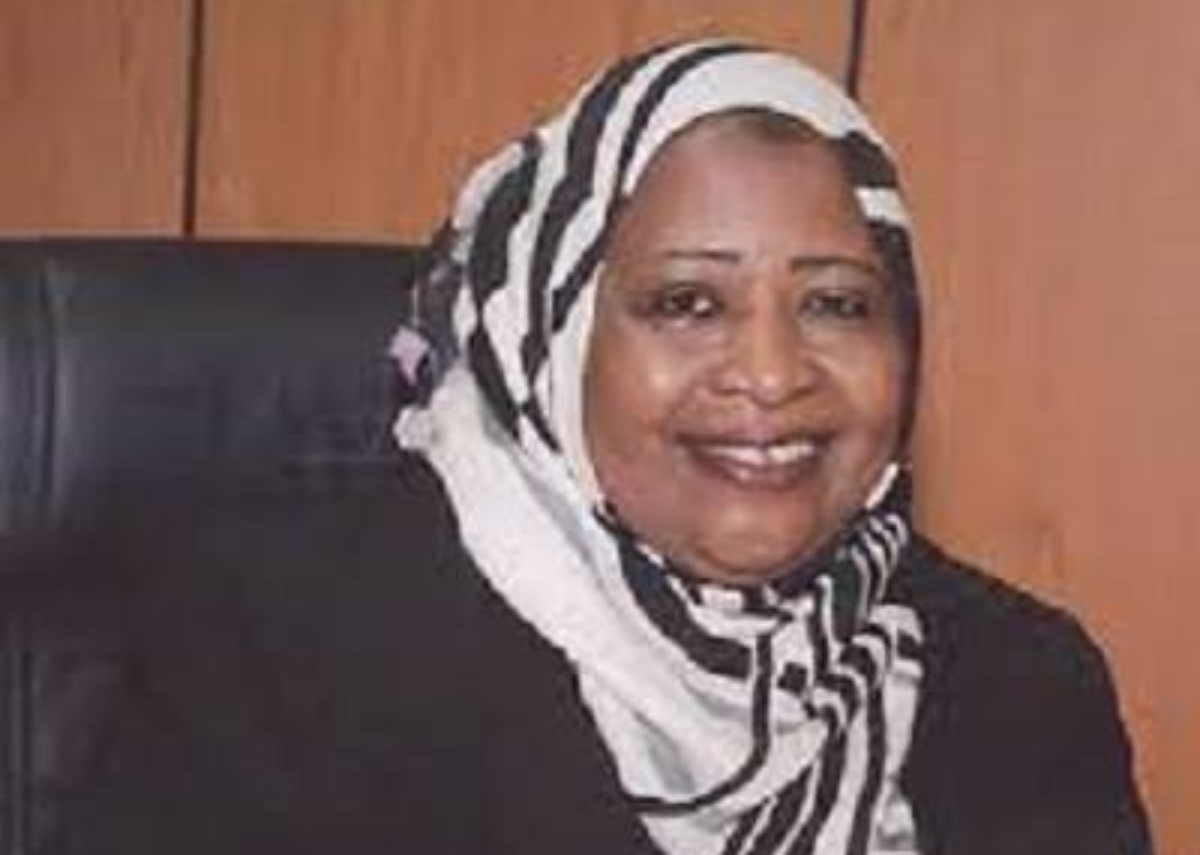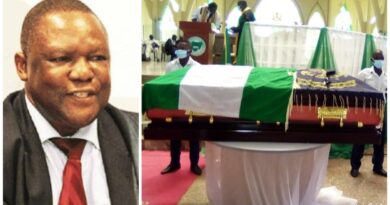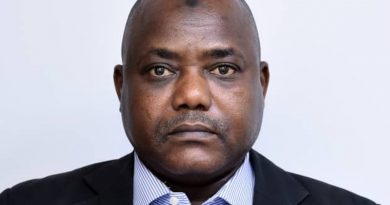Prof Ibrahim Umar: 3rd Vice-Chancellor of Bayero University Kano
Prof Ibrahim Umar is a Nigerian scientist, distinguished Abusite, university administrator, respected elder statesman and renowned professor of physics.
He is the first Nigerian academic in physics to teach at Bayero University, the first Nigerian to serve as chairman of the board of Governors of the IAEA, third vice-Chancellor Bayero University Kano and former Sole Administrator of the Federal University of Technology, Minna.

Prof Ibrahim Umar’s Education
Prof Ibrahim Umar started his elementary school in Bichi before going to the Kano Middle School (Rumfa College) and then, Barewa College in Zaria.
ALSO READ: PROFESSOR MUSA BORODO: The Father of Medicine in BUK
After his secondary education, he went to the Nigerian College of Arts, Science, and Technology, which provided advanced education for people who finished secondary school. After which he proceeded to the great Ahmadu Bello University Zaria to study for a B.Sc. in physics and mathematics.
He proceeded to the US for an M.Sc. in physics from Northern Illinois University, USA and later to the UK for a Ph.D. (1974) in physics at the University of East Anglia.
After his first degree at ABU, Prof Ibrahim Umar joined the services of the Ministry of Education in northern Nigeria, where he taught in secondary schools. His first posting was to Okene.
After he returned to Nigeria from the United Kingdom where he went for advanced studies, he was posted to the Advanced Teachers’ College, Zaria.
He was in Zaria when the issue of creation of states was finalized and people were posted to their states of origin. Prof Umar was posted to his state of origin, Kano. While in kano, he was first posted to Hadejia Secondary School and later transferred to Rumfa College.
He went for a masters’ degree program in the United States and afterward proceeded to the UK for his Ph.D. Upon his returned, he was posted to the new College of Advanced Studies, Kano.
When the Abdullahi Bayero College, (now Bayero University) was established, Prof Ibrahim Umar was transferred to the school’s Faculty of Science in 1976 becoming the first Nigerian academic in physics to teach at Bayero University, where he later became Vice-Chancellor from 1979 to 1986.
He was also a Sole Administrator of the Federal University of Technology, Minna between 1994 and 1997. In 1978, he served in the national constitutional assembly that drafted the Constitution of the 2nd Republic.
He represented Nigeria at the Executive Assembly of the World Energy Council from 1990. He was a member of the Nigerian delegation to the International Atomic Energy Agency (IAEA) General Conference from 1989.
The central issue of the annual conference was to ensure that members of the IAEA only used nuclear energy for peaceful purposes. He was appointed Director-General of the Energy Commission of Nigeria in 1989.
Prof Ibrahim Umar served as Chairman of the Board of Governors of the IAEA for 2000-2001 becoming the first Nigerian to serve as chairman of the board. The board is the organ responsible for approving all proposals for aid to countries that want to use a particular aspect of nuclear energy.
It also looks at the report on the utilization of nuclear energy in various countries. In 2004 he was the Director of the Centre for Energy Research and Training, where the first Nigerian research nuclear reactor is located.
In 2007, he was on the international advisory committee for the international workshop on Renewable Energy for Sustainable Development in Africa, held at the University of Nigeria, Nsukka in Nigeria
In 2014, Kano Elders Forum elected Prof Ibrahim Umar as its new chairman following the death of the former chairman, Malam Magaji Dambatta, OFR, CON.
Prof Ibrahim Umar’s opinion about the declining standard of education in Nigeria;
“The problem of declining standard of education is what you can say is pervasive. The problem affected primary and secondary schools, as well as tertiary institutions. There are no adequate facilities. If you go to our primary schools you would find that the population of pupils in the classrooms is actually difficult to control….”
“….The buildings are insufficient and teachers are not well trained. With such situation the standard of education will fall. Of course once the standard in the primary school is low, you can expect this to have an effect on the secondary school.
Also, in secondary school you have the problem of huge number of students in a classroom. Where there is such problem, effective teaching won’t be easy, thus the standard of education will fall…..”
“….Even in the tertiary institution, we have this problem of the huge number of students and inadequate facilities. In some places, you can find that some students receive lectures from the windows because they cannot get into the classrooms.
Of course, the fact that the standard of education has fallen in secondary school would mean that tertiary institutions would be affected as well. This is because that is where you produce teachers for secondary and higher institutions….”
“…With this kind of situation, you would not know where to start to tackle the problem because the teachers who were produced by the tertiary institutions would not make any change in the lower schools. So we really have a serious problem.
But some private schools control their number of students, recruit good teachers and pay them good salaries. You can see that the standard there is high. That is an indication that you need to do something about the number of students in schools, as well as the number of teachers available and their level of qualification. These things are necessary if you want to see improvement in the standard of education in Nigeria.”
His typical day after retirement
My time is mostly for non-governmental organisations, especially those involved in Islamic activities. I am currently using my time for religious activities. I also belong to committees set up by either the government or non-governmental organisations to work for the people.
When I wake up in the morning, about 5am, I go to the mosque for prayer. When I come back I create time to read and do extra religious activities before breakfast time. And after breakfast, depending on my schedule for the day, I read until it is time for the Zuhr prayer and I go to the mosque.
After that I will come back home for launch, after which I will continue reading until is time for the Asr prayer. Unless I have meetings, I usually stay at home and read throughout the day.
For Advert Placement, Sponsorship, support, Article submission, suggestion, etc, Contact us: info@theabusites.com, +2349015751816 (WhatsApp)








